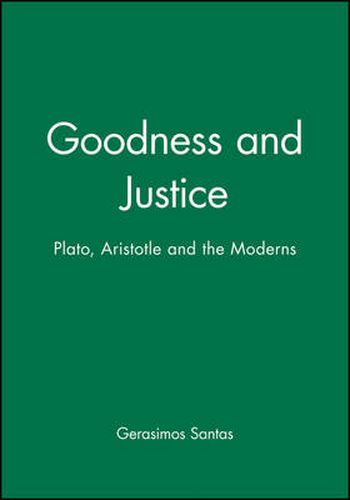Readings Newsletter
Become a Readings Member to make your shopping experience even easier.
Sign in or sign up for free!
You’re not far away from qualifying for FREE standard shipping within Australia
You’ve qualified for FREE standard shipping within Australia
The cart is loading…






This volume explores Plato’s and Aristotle’s theories about good things, goodness, and the best life for human beings, and draws comparisons between ancient and modern theories of good and justice. Goodness and Justice argues that goodness was the most fundamental normative concept in the ethics of Plato and Aristotle, and illustrates how they used their functional and formal theories of good to build their theories of virtue, justice, and happiness. It also shows that they fought subjective theories of good as desire satisfaction and good as pleasure, in favor of what they thought was a more objective concept of good found in form and function. The comparisons with the moderns illuminate the merits and limits of ancient and modern ethical theories and place them within a broad philosophical and historical context.
$9.00 standard shipping within Australia
FREE standard shipping within Australia for orders over $100.00
Express & International shipping calculated at checkout
This volume explores Plato’s and Aristotle’s theories about good things, goodness, and the best life for human beings, and draws comparisons between ancient and modern theories of good and justice. Goodness and Justice argues that goodness was the most fundamental normative concept in the ethics of Plato and Aristotle, and illustrates how they used their functional and formal theories of good to build their theories of virtue, justice, and happiness. It also shows that they fought subjective theories of good as desire satisfaction and good as pleasure, in favor of what they thought was a more objective concept of good found in form and function. The comparisons with the moderns illuminate the merits and limits of ancient and modern ethical theories and place them within a broad philosophical and historical context.